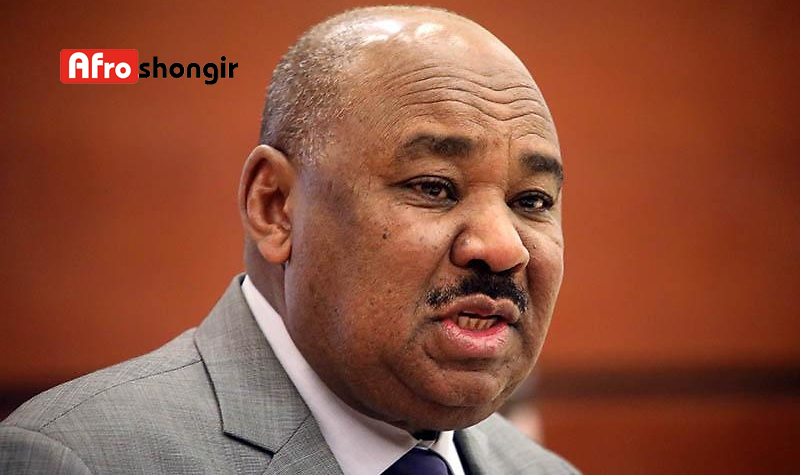Khartoum: Aida Gissees
The idea ofincreasing wages and reforming the salaries’ skeleton remained a matter that worries many workers and the government alike, in the sense that every day the markets witness an increase in prices without wages being feasible to meet these increases, and the relationship has remained steady between weak wages and escalating increases in the prices of goods and services. The minimum wages set by the state at 425 sd does not equal or suffice the least necessary needs, so it is important and necessary for the state to increase wages.
After the formation of the transitional government and Dr. Ibrahim Al-Badawi assumed the post of Minister of Finance and Economy, he promised to increase wages to meet the rise in the cost of living and was assumed that this would be included in the budget of the year 2920, but it was postponed for further study. Accordingly, the Minister of Finance, Dr. Ibrahim Al-Badawi, issued a decision to form a committee to study, reform and improve the salaries’ structure in state institutions in the public sector in accordance with the conditions of public service. The committee, headed by Professor Abdel Mohsin Mostafa, through extensive discussions, reached a scientific vision that enables the state to change the salaries’ structure according to the grades of the career scaling for workers in public sector institutions within the framework of promoting job performance and improving the salary structure for workers in the state, while the Ministry of Finance and Economic sought to developeplans achieving the country’s goals and improving the standard of living.
The committee recommended an increase in the wages of civil servants by an average of 569%, in addition to raising the minimum wage from 425 sd to 3000 sd (seven folds) with the most significant change in the history of the civil service in handling and improving wages for workers in the country according to a new vision, besides the increase will improve the living conditions of workers in the country.
In this context, the Ministry of Finance and Economic Planning directed that the salaries of the month of April should be paid before the lockdown imposing and that the resulting monetary difference in the increase in the April salary to be paid with the salary of May in the new salary structure.
Economists fear financing the increase in wages by printing currency or covering increases from the financing process with a deficit, stressing the negative effects of increasing wages on commodity prices and inflation rates, while not denying the state of pleasure and joy that would affect workers due wages’ increase, which would achieve social justice for them, stressing that the ratio of the increase isquite large.
The economist at the University of Khartoum, Dr. Mohamed El-Jak said that the increase in wages would have a favorable effect in the event that it is escorted with the supervision and control of markets, besides being calculated proportionally with the rate of the production increase.” We bet otherwise that it would be like deficit financing in other word printing money and not real production projects”.
Jak stressed in an interview with (afroshongir) that the state is still unable to control and direct the market and prices, therefore any increase in wages will be absorbed by the increase in prices and inflation rates. Therefore individuals will not benefit from the increase and will not be reflected on the level of the individuals’ living in terms of that the monetary increase is offset by an increase in Inflation.
Al-Jak stressed on the need for the state to focus on production and at the same time to interfere and control the market. He continued” It is not useful for the state to leave the production sector to the private institutions, given that the state’s involvement in production is a source of supply of goods. Noting that Liberation does not mean that the state disavow completely production. Stressing that private institutions have a lot of means that enable them to impose high prices through monopoly, brokers and agents. Adding that stressing the need for the state to intervene to resolve price escalations and monitor markets.
With regard to the increase in wages and their repercussions on the budget, Al-Jak stressed that all the participating committees were calling for proposals to increase the revenues, given that the state has no sources to finance the revenues and thus may resort to printing money, stressing that this will have direct impact on inflation, revealing that all the proposals that will be launched in the revenue should be confined to development projects besides focusing on increasing the tax revenue, pointing out that it is known that the tax contribution rate in the national product constitutes a simple percentage, explaining that the tax rate is one of the lowest known rates and taxes do not contribute compared to production due to negative methods of tax evasion and exemptions, besides the state for its part can not increase tax revenue except through the expansion of the tax umbrella to include new categories, indicating that it allows the provision of revenue to counter the proposals to increase wages.
Jak deplored that the increases are at high levels. He continued, “I fear that the state increases wages without finding real sources of revenue, which may lead to the deterioration of living”.
With the economist describing the wages’ increase is good and fair for workers, especially after the huge increases in the level of prices, however, Ohaj in revise raised the question, in an interview with (Afroshongir), from where will the huge jump in the wage level be financed? and whether the increase will be funded by the expansion of printing money? Describing at the same time the matter as risky, which may lead to an expected economic collapse, in the sense that the increase in printing money would extend the monetary mass and consequently, increase the inflation rates and the collapse of the value of the Sudanese pound.
Ohaj warned that if the government considered financing the increase in wages by expanding the increase in taxes, this will also lead to the increase in taxes and consequently the increase in the general level of prices.
Ohaj assured that the draft budget submitted and approved by council of ministries, contained no speculation of such an increase to asses revenue estimates to build on, and asked if there reserves of money that have been approved to finance the increase.
• Ohaj said “Despite the joy that each worker will experience when reading the news of the increases, but the biggest concern remains and the main question is; from where will these increases be funded?”. Pointing to the existence of classes that struggle with seasonal wages, daily wages, pensioners and limited income individuals, surely they will be swept away by the increases, he said, and continued, “I wish, before these increases were announced, that their sources of funding would be disclosed at a time when the Sudanese economy suffers from suffocating crises in fuel, bread, and consecutive increases in commodity prices”.
On the other hand, the banker, Muhammad Mustafa, assured that the increase in the wages of public sector’s workers announced by the Minister of Finance, which amounts to 569%, is almost the largest in the history of Sudan, and perhaps in the whole world.
Muhammad Mustafa told (Aroshongir) that the move has advantages and positives, which, according to his point of view, are two main points; The first is the elimination of historical injustice on a vital and important sector such as the education sector, where it received the largest increase until the salary of the university professor equaled that of a ministry’s deputy, which is the highest rank in the ministry s’ jobs skeleton , besides increasing the salaries of the health sector by appreciated rates as well.
Mohamed Mustafa stressed that the situation in the general budget will not be complicated in the desirability of lifting subsidies for oil, bread and electricity and raising some other government fees in terms of the possibility that these subsidies would cover the budget deficit.
Calling for focusing on the necessity of setting clear and explicit policies and effective mechanisms to control the market’s crises, pointing out that it is a priori that there will be a qualitative leap in prices and high inflation after announcing the increase of wages, and then the market mechanism must work to stabilize the rate of inflation, indicating that in monetary policy the state must not seek to cover increases from the financing process with a deficit criteria , as this will lead to an unlimited increase in prices and break it down to all expected ratios, if the financing was made from surplus differences to lift support for some commodities, then it will have a positive outcome.
The economist, Dr. Al-Sammani Hanoun, expected in an interview with (afroshongir) a rise in prices more than the rate of increase in wages, stressing that the higher the wages, the more the market will ignite, describing that as extinguishing the fire with benzene.
Hanoun stressed, during his presentation of a number of proposals for solutions, to recover the looted funds set aside for the Ministry of Finance ‘along with a complete exit for government and semi-government institutions from trade and investment with the importance of preventing brokers and building a direct relationship between the seller and the buyer through sales centers and cooperative societies.
Hanoun called for proposals in his solutions to prevent monopoly in all its forms and to promote full competition in all aspects of the economy by relying on technology in monitoring and providing information to reduce effort and cost, as well as attracting qualified cadres in economic institutions away from party quotas, and promoting barter in internal and external commercial transactions to reduce demand on the money, calling for the speedy signing of peace and achieving national reconciliation after accountability and the application of justice to criminals and spoilers, with the importance of changing the currency according to specific controls and conditions, revealing the existence of a detailed concept of changing the currency.
Hanoun stressed not to focus on solutions from abroad and to promote internal solutions to the crises.
Stressing that the proposals presented by him are decisive and short termed, and accordingly, economy remains the science of alternatives, which can be added and deleted, as the case may be, recalling that managing the economy is both a skill and a talent.















